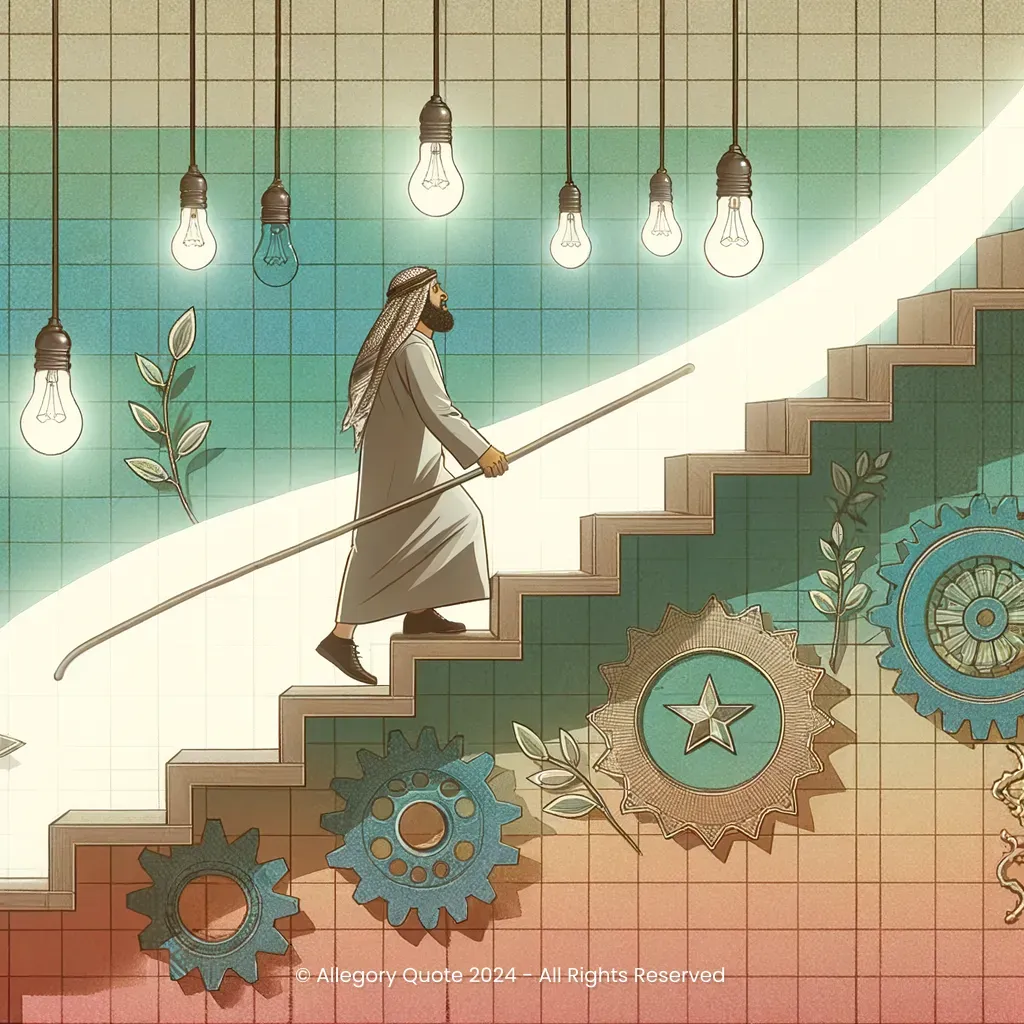”Insanity is doing the same thing over and
over again and expecting different results“

0
0
0
0
- Meaning
- The phrase highlights the absurdity of repeating the same actions while anticipating varied outcomes. Philosophically, it invites reflection on the nature of expectation versus reality and emphasizes the importance of learning from failure. Psychologically, it speaks to the concept of cognitive dissonance, wherein one's beliefs clash with their actions.
- Allegory
- The image elements, particularly the recurring staircase, illustrate the cycle of behavior while the light bulbs symbolize new ideas waiting to be discovered. The soft colors promote a sense of reflection, encouraging viewers to consider how changing their actions can lead to more positive outcomes.
- Applicability
- Applying this phrase involves recognizing when a strategy or approach is ineffective and being willing to change tactics. It encourages individuals to experiment with new behaviors rather than stubbornly adhering to ones that lead to disappointment.
- Impact
- The phrase has deeply influenced discussions in psychology, education, and personal development, often quoted in self-help literature and motivational contexts, encouraging individuals and organizations to innovate and adapt rather than remain static.
- Historical Context
- The quote's origin seems to date back to the early 20th century, around the time Einstein was gaining notoriety. It reflects growing insights in psychology regarding human behavior and patterns during that era, particularly influenced by thinkers like William James and Sigmund Freud.
- Criticisms
- Critics argue that the phrase oversimplifies complex behaviors and that sometimes repetition can lead to mastery, as seen in learning processes. Others might point out that it neglects the value of perseverance in certain contexts.
- Variations
- Variations exist across cultures; for example, in Japanese culture, the concept of "kaizen" emphasizes continuous improvement, contrasting with a repetitive outcome focus. In this context, changing approaches is seen as necessary for growth.
-

You never fail until you stop trying.
-

Life is like riding a bicycle. To keep your balance, you must keep moving.
-

I have no special talent. I am only passionately curious.
-

The only limit is your soul.
-

We cannot solve our problems with the same thinking we used when we created them.
-

All it takes is faith, trust, and a little bit of pixie dust.
-

No problem can be solved from the same level of consciousness that created it.
-

I think it’s time for a new adventure.
-

Great spirits have always encountered violent opposition from mediocre minds.
-

Sometimes, the smallest things take up the most room in your heart.
No Comments